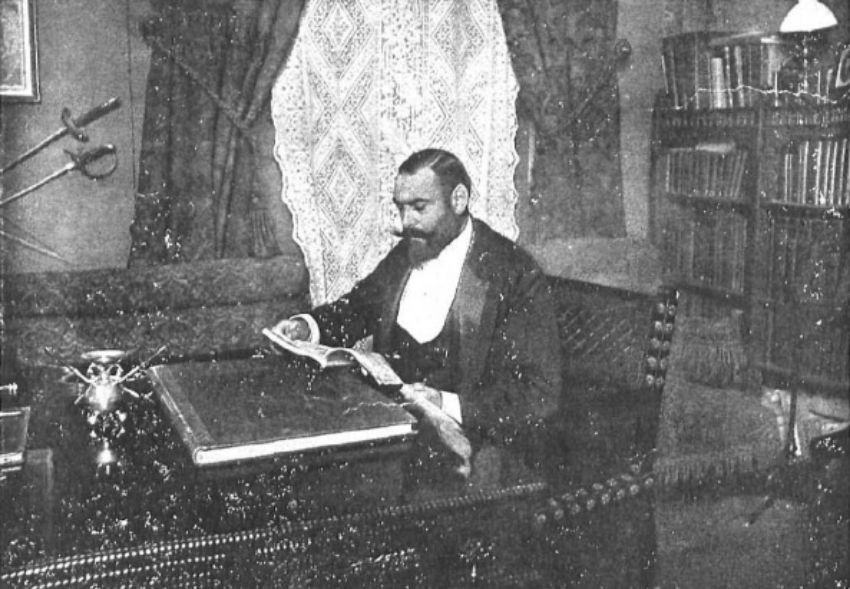The official diplomatic relations between Bulgaria and Spain, present-day partners in the European Union and NATO, were established on May 8, 1910. A historical look back shows that the first contacts between Sofia and Madrid date back to more than 30 years after the Liberation of Bulgaria from the Ottoman Rule in 1878. What caused this delay?
In 1878, Bulgaria became politically free, but only to a certain extent. At a congress held in Berlin four months after Bulgaria’s Liberation, the European Great Powers ruled that the status of the new state would be a vassal of the Turkish sultans, imposing some restrictions on its foreign policy - for example, it was not allowed to conclude treaties with other countries. This is the reason why many countries at that time were in no hurry to establish diplomatic relations with Sofia. That is why their representatives in the Bulgarian capital were called "diplomatic agents" or "consuls general", and not ministers or ambassadors plenipotentiary. The same was true of Bulgarian diplomats in other countries.
In 1908, Spain had only one honorary consul in Sofia. He was a French citizen married to a Spaniard, a shareholder in a match factory. The year 1908 was crucial for Bulgaria because it was then that the independence of the Principality of Bulgaria was declared. Bulgaria became a kingdom (tsarstvo) and its ruler Prince Ferdinand – a king (tsar). This act opened the doors wide for the establishment of diplomatic relations with a number of countries. Spain did so in 1909, after persistent Bulgarian diplomats raised the issue before Madrid through its diplomatic agent in Vienna.
On May 12 the same year, eight months after the declaration of Bulgarian independence, the Minister of Foreign Affairs of Spain Manuel Allendesalazar sent a telegram to Count Zorata, head of the Spanish Embassy in Vienna, and ordered him: "Respond to the Bulgarian diplomatic agent that His Majesty's Government is pleased to recognize the new political situation in Bulgaria, and extend warm wishes for happiness and prosperity by sending respectful congratulations to the new ruler!” On the 13th of the same month, the head of the Spanish diplomatic mission in Vienna handed this text with a note verbale to the Bulgarian agent.

Thus, 18 months after the declaration of Bulgarian independence, on May 8, 1910, Madrid and Sofia established diplomatic relations. In 1911, the first Minister Plenipotentiary sent from Spain to Bulgaria, Manuel Multedo, presented his letter of credence to King Ferdinand. However, Madrid had to wait several years - until 1923 - to welcome the first Bulgarian high-level legation leader accredited in Spain.
Until 1910, there were practically no official contacts between Bulgaria and Spain. There was a lack of political, trade and cultural exchange. No agreements or treaties were signed. The two countries lived estranged from each other, each in its own southern peninsula of Europe and each with its own problems. There were sporadic contacts only between the courts of King Alfonso XIII of Spain and Prince Ferdinand since 1887, when the latter ascended the Bulgarian throne. However, they were of a purely sentimental nature and did not go beyond the mere display of their kinship relations, without any fact arising to stimulate the strengthening of bilateral state contacts.
The establishment of diplomatic relations on May 8, 1910 gave impetus to communication in all areas, although it did not lead to the very high level of political, economic and cultural contacts, which we have witnessed after the democratic changes in Bulgaria in 1989.
Today, according to official statistics, more than 125,000 Bulgarians live and work in Spain, but unofficial data speak of nearly 250,000 of our compatriots there. An informal ambassador of Bulgarian culture in the kingdom are the registered 44 Bulgarian Sunday schools for studying Bulgarian language and traditions, over 50 Bulgarian and mixed associations, 3 Bulgarian Orthodox communities with centres in the cities of Dénia (Valencia), Segovia (Castile and León) and Barcelona (Catalonia).
Good diplomatic and human contacts have also affected trade and economic indicators. Bilateral trade turnover in 2018 amounted to over 1.8 billion euros, and Spanish investments in Bulgaria reach 22.2 million euros. Spain is also an attractive destination for Bulgarian tourists - over 148,000 Bulgarians have travelled there for tourism. At the same time, over 77,000 Spaniards have visited tourist attractions in Bulgaria.
English Rossitsa Petcova
Photos: Embassy of Spain to Bulgaria and archive
For the seventh time in three years, Bulgarians went to the polls, and the results shed light on some of the behind-the-scenes manoeuvring. A seemingly minor detail in the counting of votes for the Velichie party, which missed the 4% threshold to enter..
The Alliance for Rights and Freedoms (APS) of Ahmed Dogan - the honorary chairman of the former DPS movement - announced its support for the PP-DB declaration for a sanitary cordon around Delyan Peevski's formation - DPS - New Beginning. APS said..
Whether there will be negotiations to form a government will become clear after the election of the speaker of the National Assembly . Parliamentarism requires that the speaker be a GERB member and we will not compromise, GERB leader Boyko Borissov told..

+359 2 9336 661
